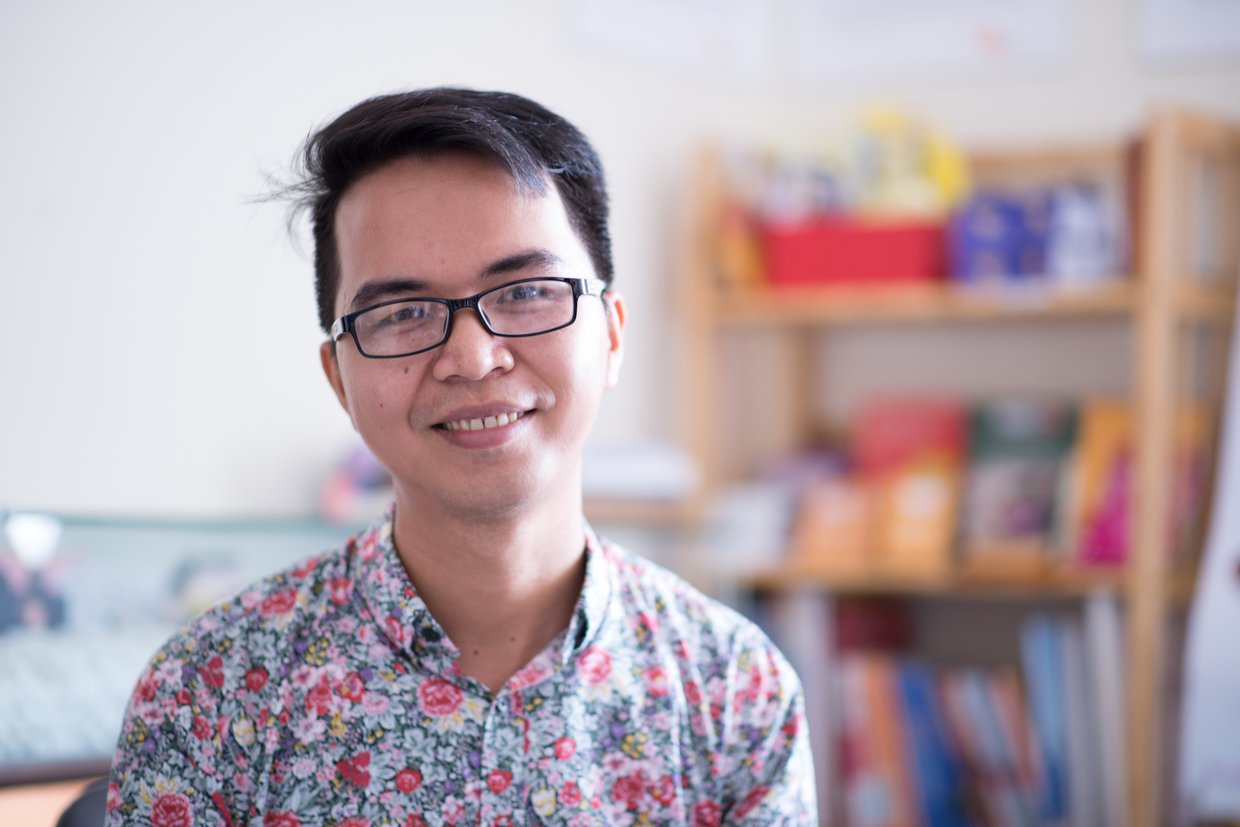In the privacy of their own homes, people in Vietnam can now test themselves to learn if they have HIV in just minutes.
It’s a critical step forward for the government’s ambitious commitment to ensure 90 percent of people living with HIV know their status by 2020.
In a country where stigma persists and even buying a condom at the corner pharmacy can lead to neighborhood gossip, HIV self-testing could transform access to diagnosis and treatment.
Too scared to test
HIV prevalence among men who have sex with men and transgender women is disproportionately high in Vietnam, with HIV rates in urban populations estimated to be as high as 18 percent. Nationwide, there are more than 250,000 people living with the virus, but fewer than half are on treatment. And each year, only about 30 percent at risk actually access conventional HIV testing services.
For the lesbian, gay, bisexual, and transgender (LGBT) community, getting tested for HIV in Vietnam poses bigger challenges than just the health implications of a positive diagnosis. Many also fear the stigma that accompanies being HIV positive and possible repercussions within their families, communities, or workplace if they are publicly identified as LGBT.

Le Minh Thanh, who runs G-LINK, said discrimination and stigma prevent people from accessing HIV services and treatment in Vietnam. Photo: PATH/Matthew Dakin.
G-LINK’s director, Le Minh Thanh, said many of his members have been too scared to get tested. Those with higher social status—”office guys,” as Thanh describes them—are particularly fearful.
“They’re not out, so keeping their information confidential is very important,” he said. “There is so much interest in self-testing, and we think it will result in a significant increase in HIV testing.”
The best way to reach people most in need
Grassroots organizations like G-LINK, one of PATH’s partner organizations in Ho Chi Minh City, have earned the trust of the high-risk groups they serve—in this case, LGBT people.
The seven-year-old organization has used the growing popularity of social media channels like Facebook and YouTube to build a community among its 2,000-plus members, while also offering HIV-related products and services. Not only does the group sell condoms online, they recently launched a sitcom on YouTube featuring a transgender actress focusing on public health messages about safe sex. G-LINK also hosts confidential monthly HIV testing in their Ho Chi Minh City office and now offers self-testing supplies and support services as well.

Demonstrating the oral swab HIV self-test at the launch of the Healthy Markets’ HIV self-testing in Vietnam, supported by staff members of local community-based organizations who are trained in self- and lay-testing, are (L-R): Clayton Bond, husband of th
Changing the way Vietnam manages HIV
The recent launch of self-testing in Vietnam marks an important milestone for Healthy Markets, a PATH-led initiative that aims to create a new marketplace for products and services that can prevent HIV, including testing, preexposure prophylaxis, condoms, and safer needles for drug users. The five-year project represents a broad, cross-sectoral collaboration of manufacturers, distributors, private health care providers, government, and community-based organizations.
Learn more about the Healthy Markets project.
Partnerships like these are creating social enterprises that can dramatically increase the number of people who have access to HIV-related goods and services while generating income to support participating organizations’ outreach and activities. The initiative is funded by the US Agency for International Development (USAID) and implemented by PATH in partnership with the Center for Creative Initiatives in Health and Population and T&A Ogilvy.
Empowered to self-test
G-LINK and other community-based organizations are partnering with Healthy Markets in a self-testing pilot, offering guidance to individuals on how to use HIV rapid diagnostics to test themselves.
Clients are given a choice between a blood-based, finger-prick test or an oral swab–based test, and instructions on how to use their chosen test. They can take the test in a private room at the participating organization or at home. Staff of the community-based organizations stay in contact with each person who takes a home test, connecting them to treatment if necessary. The staff provide counseling and follow up with anyone who receives a reactive result (meaning that they may have HIV and that a confirmatory blood test is required).
So far, 446 people have opted for self-testing, and 29 (almost 7 percent) of these people were confirmed as HIV positive. Data up until June 2016 show that 100 percent of those identified as HIV positive were subsequently enrolled in HIV treatment.
Toward the global goal of ending AIDS by 2030
Through Healthy Markets, PATH aims to generate long-term change in attitudes toward HIV prevention and management in Vietnam. Using innovative testing and service delivery methods, Healthy Markets is opening the door to easily accessible, convenient, and private HIV testing for those most at risk from HIV.
Watch this video to learn more about other community organizations in Vietnam supported by the Healthy Markets project.
